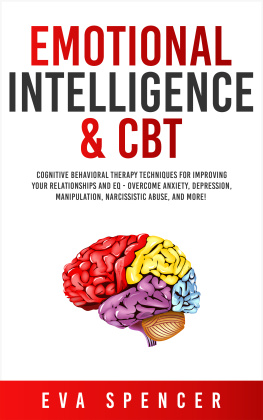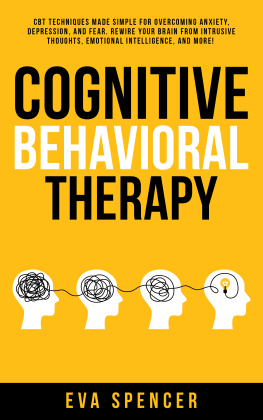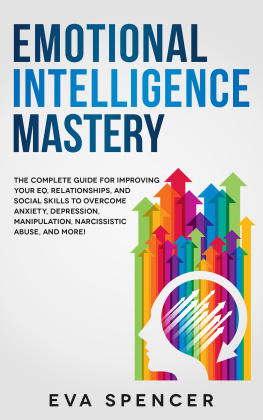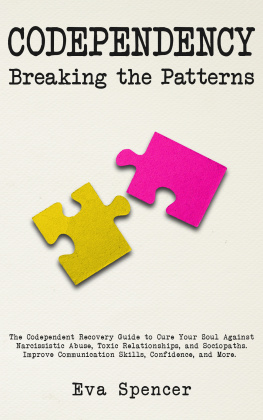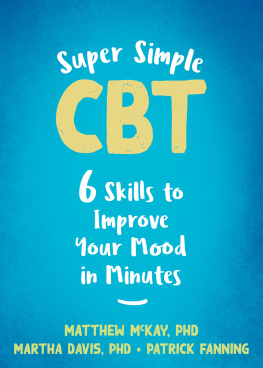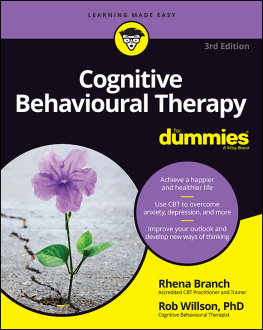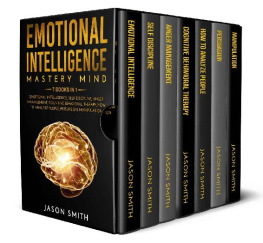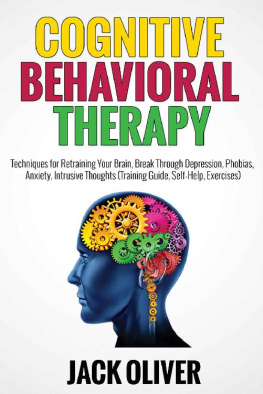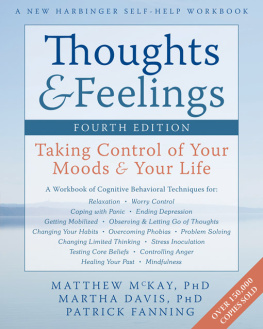Eva Spencer - Emotional Intelligence & CBT: Cognitive Behavioral Therapy Techniques for improving Your Relationships and EQ--Overcome Anxiety, Depression, Manipulation, Narcissistic Abuse, and More!
Here you can read online Eva Spencer - Emotional Intelligence & CBT: Cognitive Behavioral Therapy Techniques for improving Your Relationships and EQ--Overcome Anxiety, Depression, Manipulation, Narcissistic Abuse, and More! full text of the book (entire story) in english for free. Download pdf and epub, get meaning, cover and reviews about this ebook. year: 2022, publisher: PublishDrive, genre: Religion. Description of the work, (preface) as well as reviews are available. Best literature library LitArk.com created for fans of good reading and offers a wide selection of genres:
Romance novel
Science fiction
Adventure
Detective
Science
History
Home and family
Prose
Art
Politics
Computer
Non-fiction
Religion
Business
Children
Humor
Choose a favorite category and find really read worthwhile books. Enjoy immersion in the world of imagination, feel the emotions of the characters or learn something new for yourself, make an fascinating discovery.
- Book:Emotional Intelligence & CBT: Cognitive Behavioral Therapy Techniques for improving Your Relationships and EQ--Overcome Anxiety, Depression, Manipulation, Narcissistic Abuse, and More!
- Author:
- Publisher:PublishDrive
- Genre:
- Year:2022
- Rating:4 / 5
- Favourites:Add to favourites
- Your mark:
Emotional Intelligence & CBT: Cognitive Behavioral Therapy Techniques for improving Your Relationships and EQ--Overcome Anxiety, Depression, Manipulation, Narcissistic Abuse, and More!: summary, description and annotation
We offer to read an annotation, description, summary or preface (depends on what the author of the book "Emotional Intelligence & CBT: Cognitive Behavioral Therapy Techniques for improving Your Relationships and EQ--Overcome Anxiety, Depression, Manipulation, Narcissistic Abuse, and More!" wrote himself). If you haven't found the necessary information about the book — write in the comments, we will try to find it.
ITS TIME TO LEAVE BEHIND THOSE INTRUSIVE AND NEGATIVE THOUGHTS THAT HOLD YOU BACK FROM ACHIEVING HAPPINESS
We all have our own unique set of thoughts that determine our emotions and sometimes we cant help but let these emotions control us. Sometimes, a simple thought is all it takes to ruin our mood.
But what if we could change those thoughts in order to change our feelings?
Thats where this book comes in!
Cognitive Behavioral Therapy (CBT) and Emotional Intelligence (EQ) can help you overcome your issues and live the life you want to live.
By using CBT and EQ techniques, you can learn how to change your thoughts in order to feel better about yourself and others around you. And by learning emotional intelligence skills, such as empathy and self-awareness, it will be easier for you to have successful relationships that last a lifetime!
Its time for you to take control of your life and start living it on your terms!
With this book, youll discover:
- How to understand your emotions and control your thoughts.
- The best method to rewire your brain and turn negative thoughts into positive ones!
- The secrets to having and maintaining better relationships with yourself and those around you.
- A happier and emotionally stable life!
- Accurate and expert-backed information to ensure a successful learning experience.
- Easy ways to take control of your life and change it for the better!
Imagine being able to have better relationships with everyone in your life - friends, family members, coworkers, or even a romantic partner. Imagine feeling confident when talking about yourself or standing up for yourself in any situation because of the skills learned from this book.
Learn these powerful tools and change your life forever!
CLICK ON BUY NOW AND LEARN HOW TO TAKE CONTROL OF YOUR EMOTIONS TODAY!
Eva Spencer: author's other books
Who wrote Emotional Intelligence & CBT: Cognitive Behavioral Therapy Techniques for improving Your Relationships and EQ--Overcome Anxiety, Depression, Manipulation, Narcissistic Abuse, and More!? Find out the surname, the name of the author of the book and a list of all author's works by series.

